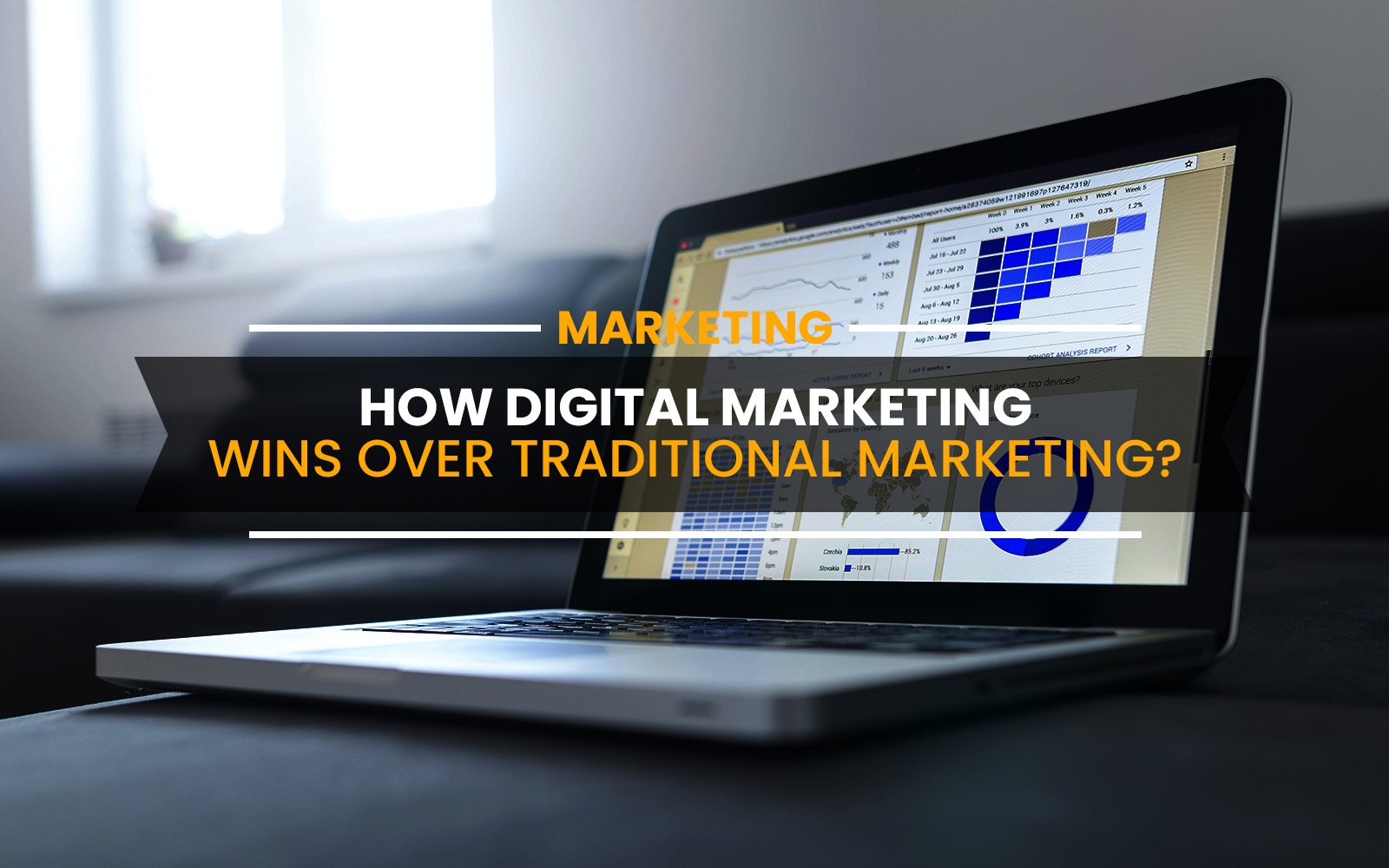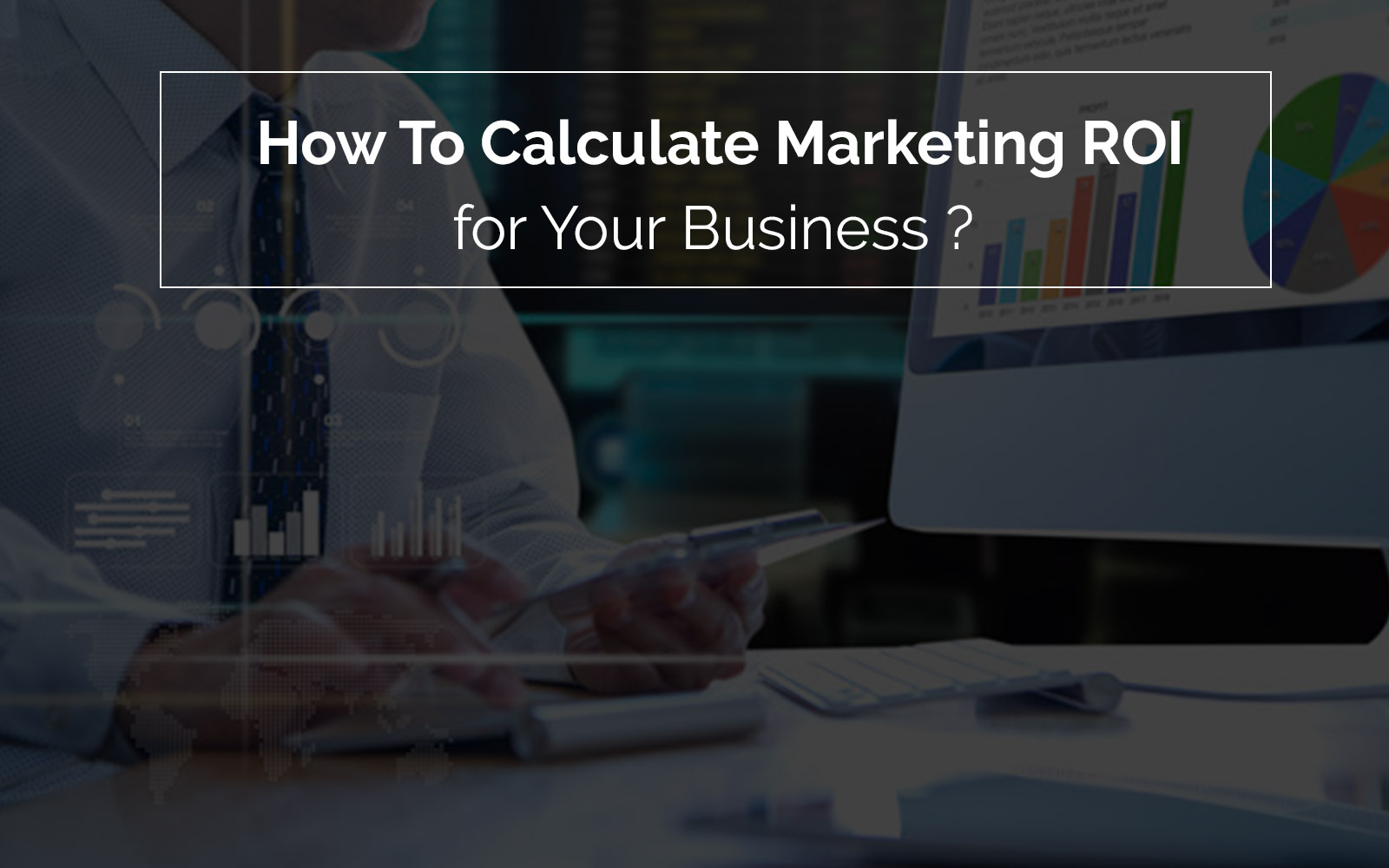Marketing is an essential aspect of businesses. A wise entrepreneur would separately make a budget for marketing only. There are many ways for companies to…
Finding the worth of marketing campaigns at the initial stages where conversions and KPIs aren’t directly linked to sales can be crucial. Accurate calculation of marketing ROI proves how much your campaigns are successful and contribute to the total revenue for your business.
Return-On-Investment KPI has substantial importance to know which marketing strategies are profitable. One of the top priorities businesses have is to accurately calculate the ROI of their marketing campaigns. Apart from telling you the success of the campaign, such KPIs also enable you to detect areas that need improvement so that you can optimize them to enhance the performance of your campaigns.
However, ROI is not the single indices that business owners should follow. Also, there’s no single metric that rules others because businesses should use ROI and other performance indices with one another, which we are going to have a look at throughout this article. Now, before we get into how to calculate ROI for your business, let’s first understand what it is.
What is Marketing ROI? How to Calculate It?
‘Tis always a great practice to start with defining the term first and then go deeper into uncovering other important parts. Marketing ROI refers to how much revenue you generate in return for the total expenditure on marketing campaigns.
In essence, ROI tells you the difference between your expenses on marketing activities and the revenue they generate for your business. Generally, marketing ROI for your business is denoted in percentage & calculated in numerous ways. We’ll be looking at several methods for ROI calculation in this article.
The most basic way for marketing ROI calculation is subtracting your total expenditure from total revenue generation for a specific period. To get this figure in percentage, divide the subtraction with marketing spend and multiple the result with 100. Here’s a simple formula for the same:
ROI = [(Total Revenue Generated from Marketing – Total Marketing Expenditure) / Total Marketing Expenditure] *100
Suppose one of your marketing campaigns has generated $12300 in a month in return for the expenditure of $5600. The ROI calculation will look like this:
ROI = [(12300 – 5600) / 5600] * 100
ROI = 1.1964 *100 = 119.64%
This is just a basic way of calculating the ROI. However, in reality, calculating ROI accurately is a bit complex process and many times would require the use of a powerful ROI calculator.
Why ROI is Important?
Calculating marketing ROI is one of the most pivotal aspects for many marketers and business owners. Your marketing strategies should generate enough revenue to justify the expenses across your marketing events. Here are some more specific reasons why ROI is so important:
1. Proves Your Marketing Strategies Bring Profits
For starters, ROI isn’t a perfect KPI to measure the success of your marketing activities there’s a reason why, which we’ll discuss later. But for now, let’s give it due credit that it deserves for being the most important KPI to measure marketing success. Accurate measurement of ROI helps prove your marketing campaigns are profitable. Simply stating the profitability makes ROI an important KPI.
2. Growth Calculation Potential
Another reason that makes ROI so important is it can help predict & calculate the growth potential for marketing activities of your business. For instance, if you are getting close to 120% ROI after spending $5600, you’d be able to grow double, in theory, after spending twice and earning twice in revenue and profit.
However, things always don’t turn out to as simple as this, but it gives you a perspective for your potential growth. Further, you can come up with specific marketing strategies worth increasing your investment.
3. Protect Your Marketing Budget
ROI provides accurate measurement for the success or failure of your marketing strategies. It can pinpoint the underperforming or negative ROIs and help protect your marketing budget or potentially business too. A poor-performing marketing campaign does not necessarily mean abandoning them altogether. What you can do is, optimize those campaigns to improve their performance and boost the ROI.
However, this doesn’t mean ROI is the perfect measure for the success of your marketing campaigns. There are plenty of other marketing campaign success indicators that should be considered alongside ROI.
As with others, ROI too has some pros and cons, knowing which will help you use it effectively. Here are the pros and cons of ROI:
Pros of ROI Metric
- Ease to Understand: ROI is easy to understand by almost every marketer and business owner. If the ROI value is positive and above 50% it means your marketing campaigns are going well and adding value for your business.
- Easy to Compare: ROI comes in handy, especially when you need to compare them to find the effectiveness of your different marketing campaigns. For instance, if your goal for the next year is to increase revenue, you can compare the past performance of your campaigns and select one with a high ROI value.
- It’s Universal & Divisible: Another great benefit of ROI is you can apply it to measure & calculate the performance of all your marketing strategies. Some KPIs and indices are only valid for a specific scenario, while the ROI is universal and divisible across all the marketing events.
Cons of ROI Metric
- Calculation Is Difficult: Many times, calculating ROI for your marketing campaign may not seem as easy as described earlier. There are so many variables involved in calculating ROI accurately and the biggest challenge is attribution. Attribution to a blog post, ad view, email campaign, and lead generation strategies for sales they bring is hard but can give you some sort of accurate result. Unfortunately, it is impossible to achieve.
- Unreliable for Making Predictions: ROI was never designed for making predictions and isn’t suitable for fulfilling this purpose. Most marketers and business owners make the mistake of assuming increasing marketing spend increases the ROI value. But as mentioned earlier, many variables impact the success of marketing campaigns and ROI is just one of them.
Other Indices & KPIs to Measure
Return On Investment is not your end goal and it shouldn’t be. The goal of measuring ROI is to estimate how profitable marketing campaigns are. Therefore, ROI should be used along with other crucial performance indices and KPIs as well. Let’s have a glance at them:
- Profit: Profits are measured in three different levels: gross profit, operating profit, and net profit. Each has its different use case.
- Profit Margin: Same as profit, profit margins too have their subsequent levels: gross profit margin, operating profit margin, and net profit margin.
- Operating Expenses: Operating expenses govern the cost of running your marketing events.
- Growth Rate: Growth Rate is revenue measured against monthly, quarterly, and annual time span.
- Cost Per Acquisition: It is the amount you spend to convert your customers.
- Customer Lifetime Value: The value each customer provides to your business from their first interaction till the last.
- Market Share: Market share is your total revenue percentage value of the total generated revenue in your niche.
- Customer Retention: The percentage of customers you retain and continue to purchase from you out of all.
- Churn Rate: Percentage of customers that stop making purchases from you over a period.
Wrapping Up
Marketing ROI is the most important & elusive KPI for marketers and business owners to measure the success of marketing campaigns. However, accurate calculation of the marketing ROI can be a tricky part but knowing how to utilize it is more complex than it appears. The more granular you get with ROI, the more opportunities you will have with optimizing your campaigns and strategies for improved performance.
Want to improve the marketing performance of your online business? M-Connect Solutions is a renowned team of developers that offer robust web and mobile development solutions that aid in improving the performance of your marketing campaigns to generate high revenue and boost your Marketing ROI. Contact us with your requirements for further discussion and kickstart your project.
About Hemant Parmar
Hemant Parmar is an eCommerce expert and a keen Magento consultant who specializes in meeting the needs of businesses in the e-commerce space. Years in the eCommerce market make him a perfect choice for sharing his expertise on eCommerce and Magento 2 development. He believes that customers need to be met no matter how challenging it might be.
Read More




